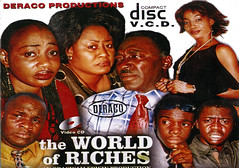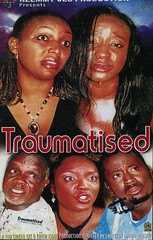Sunday Night with Amel Larrieux
Soul singers seem to dig Oakland. Something about the city's vibe resonates with them. Their appreciation is always reciprocated and audiences move rapidly from laidback contemplation to active engagement. Somehow I managed to catch Amel Larrieux and her five piece band last Sunday night in performance at Yoshi's in Oakland. Thus I can share a few notes on a comfort suite...
An electric bass guitar begins warbling, sounding something like an ethereal sitar by the time Amel walks on stage. She hums and launches into a warm acoustic rendition of Morning, the title track of her most focused album. Right out of the gate her voice grabs you as if to say "Pay attention. Get ready for some soul music". She doesn't intend to leave anything on the stage.
Trouble, is done Latin style with, as is typical in her live performances, an impromptu ending in which she starts scatting with abandon. "Louis Armstrong", she later explains, "All those years trying to be like you". She adds, "Lena Horne too". Well she's a singer's singer, it stands to reason that she has impeccable taste.
Giving Something Up is a bassy funk groove overlaid with increasingly abstract vocal stylings as it progresses, the arrangement is a mixture of jazz, soul and hip hop. Then almost improbably she breaks into Amazing Grace - a song that has never been done in this mode, urgent futuristic blues. How, the listener wonders, can a song contains such multitudes, rendered so seamlessly?
All I Got is an effortless follow up, a march reflecting on our condition. The refrain is all about the set upon (when she sings the passing lyric "slapped down a racist fool", those darker than blue in the Oakland audience respond knowingly). It's about standing strong and living without expecting any big bailout or "helping hand" as she sings: "this is all I got" indeed. As she riffs on the economic climate, "we're thoroughly spent... our credit's jacked up", there is complete empathy with the five piece band. They follow her on that the long walk with those worn shoes.
She gives a stately take on Magic and the zingers are fired rapidly: "still paying for your education when you're sixty six". Again the chorus is revelatory: "stress level's high and the morale's low". It's a blues for our time done with minimalist instrumentation. She ends with a turn as a choir director enlisting the audience in three part harmony. This kind of crowd participation is fun: we all need to "tap into that magic" to overcome our subprime present. Indeed that has been the theme of the whole concert, acknowledging what is going on in the world and finding humour to deal with it. Amel is an unpretentious artist, she makes everyone feel at home. It doesn't hurt that she's very easy to look at, the word chic describes her clothes and the long hair is doing all the right things.
A cheer of recognition greets the start of For Real, the ballad being one of the perennial fan favourites. With deft piano playing in the background, she floats into the upper registers displaying her Minnie Riperton credentials. After welcoming a a few bars from a guest soprano in the audience, she takes over. Her vocal control is breathtaking. Game, set and match, I'd say. To top it off she provides three or four different takes of the song - live remixes on stage. I'm always interested in the way singers manage to keep their trademark songs alive; somehow Amel always comes up with new arrangements subscribing to the jazz improvisation aesthetic. The jazz inclination will keep her in good stead with her audience.
We Can Be New is a warm poem, a melodious ballad very beautifully sung and ends with a reggae tinge. It must be the band's trademark to provide full glimpses of her range and musical comfort zone.
She debuts a new song, Have You?, a lover's lament peppered with humourous lyrics "I've mixed denim with whites, have you?". By this stage we are all spellbound. The elements of her appeal are simple: sympathetic piano, the light accents of her backup singer (Amira) and a singer at her peak. Amel is in full effect.
Then I almost died of joy: she sang Gills and Tails - my favourite song, the very definition of virtuosity. The vocal performance is wonderful; what the professionals would call her cry is a thing to behold. It's emotional, it's cerebral, it's quietly devastating. It's everything I like in soul music.
Wild is the Wind from her album of standards, shrewdly titled Lovely Standards, is done as a homage to Nina Simone. It's just her and the piano player; she has got the audience clinging to her every note. As the song starts to wind down she brings in the rest of the band and they add a dance groove - whoa, she can do house music, what can't she do? - the groove then morphs into Dear to me. House music man, just for the heck of it. She took a jazz standard, did it with flair and, just to show how fearless she is, she gives you some house. I give up, I'm joining the street team, Amel.
As if she read my mind, she then covers Prince's Pop Life, it's a party pure and simple - she reminisces about the Purple Rain to Parade Revolution era of His Royal Badness (she notes that she even digs Tambourine! claiming by this revelation membership in that purple secret society) and talks about the rush she got performing Take Me With You with Kamal the Abstract a couple of weeks ago.
She closes with two crowd favourites: Get up, the monster club hit from Bravebird and Tell Me (from her Groove Theory beginnings). We're all dancing and singing along. It's a celebration. There's a community feeling. We'll be holding our head high in the weeks to come, smiling on Manic Mondays and Black Tuesdays, lifted above the fray, fortified by some soul music, a soundtrack to our struggles, "this great Mountain of When". This is her thing, this is what she does best: two ninety minute sets, three nights in a row in an intimate jazz venue. Every show sold out, the audience in the palm of her hand, the soul singer performs. Amel Larrieux has done it again.
File under: music, soul, review, concert, live, jazz, virtuosity, Amel Larrieux, toli




